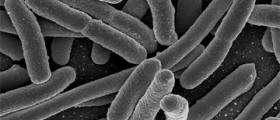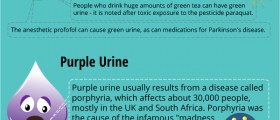
Escherichia coli or just E. coli is a bacterium which normally lives inside the human (and some animal) body as a part of the intestinal flora. There are several strains of these bacteria. Some are not harmful, while others are known to cause different medical problems.
Urinary Infections Caused by E. Coli
Escherichia coli is completely harmless when living in the intestine, but if it reaches any part of the urinary tract it can cause health problems. Urinary tract infections (UTIs) are very commonly seen to be caused by different strains of E. coli. In 9 out of 10 cases of UTIs, the cause of infection is E. coli. This bacterium can cause kidney infection (pyelonephritis), cystitis (inflammation of the urinary bladder) or any other urinary infections. Pyelonephritis is considered to be more serious than other UTIs.
Patients usually experience cloudiness of the urine, need to urinate frequently and feel pain during urination. UTIs are commonly treated with antibiotic medications.Gut and Abdominal Infections
Some strains of Escherichia coli do not normally live in the intestine and if they appear in the gut, they initiate problems such as gastroenteritis. This condition often causes abdominal pain, vomiting, diarrhea and fever. In most cases, these patients have eaten contaminated food (food poisoning) or caught this infection from another infected person. Besides food poisoning, E.coli can also cause traveler’s diarrhea or serious bloody diarrhea.
Damage to the intestine or its perforation may lead to intraabdominal infections with E.coli. Stab wounds to the abdominal area or burst appendix can lead to development of abdominal abscesses or peritonitis caused by E. coli originating from the gut.Other Problems Associated with E. Coli
E. coli is also known to lead to infections of bones, skin and soft tissue, meningitis and pneumonia. Doctors usually say that any part of the body can be infected by these bacteria, but some areas of the body are more and some less likely to be infected.
Certain subtypes of E. coli release toxins (especially E.coli O157) and they could be responsible for rare but serious medical conditions such as thrombotic thrombocytopenic purpura (TTP) and hemolytic uremic syndrome (HUS).
What Can Complicate Treatment of E. Coli Infections?
Some subtypes of E. coli are confirmed to be able to produce certain enzymes – extended spectrum beta lactamases (ESBLs). This is quite a significant discovery, because it explains how these strains of E. coli may become resistant to antibiotics, especially cephalosporins. When these drugs do not work, bacteria continue to multiply, causing much more serious infections and problems with treatment.

















Your thoughts on this
Loading...